This post is the third of a four-part series on polarised discussions in science and how to deal with misinformation. You can find Part 1 introducing the topic here, Part 2 on climate change here, and Part 4 on dealing with misinformation here.
Ever since Darwin published On the Origin of Species (1859; 150th Anniversary Edition, Darwin & Endersby, 2009), his ideas have been much debated. There have been many scholars over the years who disagreed with some or all of his ideas, and the history of this is charted in books such as Defining Darwin: Essays on the History and Philosophy of Evolutionary Biology (Ruse, 2010), Darwin’s Dangerous Idea: Evolution and the Meanings of Life (Dennett, 1995), The Non-Darwinian Revolution: Reinterpreting a Historical Myth (Bowler, 1988), and The Eclipse of Darwinism: Anti-Darwinian Evolution Theories in the Decades Around 1900 (Bowler, 1983). These academic discussions and disagreements have 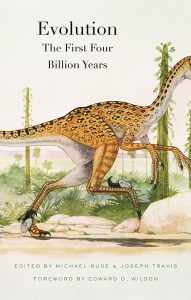 been absolutely vital to further the development of evolutionary theory and push the discipline as a whole forwards. Books such as Evolution: The Modern Synthesis (Huxley, 2010), Evolution: The Extended Synthesis (Pigliucci & Müller, 2010), Evolution: The History of an Idea (Bowler, 2009), and Evolution: The First Four Billion Years (Ruse & Travis, 2009) give a tremendous overview of the historical development of the field over the last century.
been absolutely vital to further the development of evolutionary theory and push the discipline as a whole forwards. Books such as Evolution: The Modern Synthesis (Huxley, 2010), Evolution: The Extended Synthesis (Pigliucci & Müller, 2010), Evolution: The History of an Idea (Bowler, 2009), and Evolution: The First Four Billion Years (Ruse & Travis, 2009) give a tremendous overview of the historical development of the field over the last century.
From the outset, however, there has also been an intense clash between evolutionary theory and religion, especially in America, both in general (see for example The Book That Changed America: How Darwin’s Theory of Evolution Ignited a Nation (Fuller, 2017)), but especially with the fundamentalist Christian school of thought of Creationism. The Oxford dictionary defines this as ‘The belief that the universe and living organisms originate from specific acts of divine creation, as in the biblical account, rather than by natural processes such as evolution’. It was Darwin himself who, in an 1856 letter to Joseph Dalton Hooker, dubbed its proponents, who objected to the emerging science of evolution on religious grounds, Creationists.
A particularly notable and influential episode that had enormous consequences was the 1925 Scopes trial, in which American high school teacher John T. Scopes was accused of violating Tennessee’s Butler Act, which had made it unlawful to teach human evolution in state-funded schools (see The Scopes Monkey Trial (Moore & McComas, 2016), and The Scopes Trial: A Brief History with Documents, though for an alternative interpretation offering, in the words of the publisher ‘an apologetic for divine creation’, see Monkey Business: True Story of the Scopes Trial (Olasky & Perry, 2005)). He was found guilty, though not convicted, and the trial escalated the conflict between strict creationists and scientists regarding the extent to which evolution would be taught as a science subject in schools. Trying Biology: The Scopes Trial, Textbooks, and the Antievolution Movement in American Schools (Shapiro, 2013) provides a wider historical context to 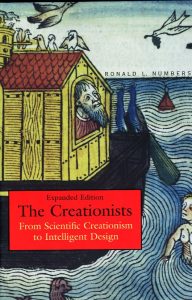 the trial. The matter of teaching evolution remains contested to this day. After the US Supreme Court in 1987 forbade teaching creationism in public schools on the grounds it violated the separation of church and state, Creationists rebranded their ideas to Intelligent Design, or ID for short (see Creationism’s Trojan Horse: The Wedge of Intelligent Design (Forrest & Gross, 2007)). These efforts have been fronted by, yet again, a conservative think tank, here the Discovery Institute. There are several books charting the controversies since the Scopes trial, for example Intelligently Designed: How Creationists Built the Campaign Against Evolution (Caudill, 2013), American Genesis: The Evolution Controversies from Scopes to Creation Science (Moran, 2012), Darwinism and its Discontents (Ruse, 2006), and the exhaustive The Creationists: From Scientific Creationism to Intelligent Design (Number, 2006). Also noteworthy is Randy Olson’s even-handed 2006 documentary Flock of Dodos: The Evolution-Intelligent Design Circus.
the trial. The matter of teaching evolution remains contested to this day. After the US Supreme Court in 1987 forbade teaching creationism in public schools on the grounds it violated the separation of church and state, Creationists rebranded their ideas to Intelligent Design, or ID for short (see Creationism’s Trojan Horse: The Wedge of Intelligent Design (Forrest & Gross, 2007)). These efforts have been fronted by, yet again, a conservative think tank, here the Discovery Institute. There are several books charting the controversies since the Scopes trial, for example Intelligently Designed: How Creationists Built the Campaign Against Evolution (Caudill, 2013), American Genesis: The Evolution Controversies from Scopes to Creation Science (Moran, 2012), Darwinism and its Discontents (Ruse, 2006), and the exhaustive The Creationists: From Scientific Creationism to Intelligent Design (Number, 2006). Also noteworthy is Randy Olson’s even-handed 2006 documentary Flock of Dodos: The Evolution-Intelligent Design Circus.
As the US Supreme Court forbade the teaching of Creationism on the grounds of it being a religion, ID proponents argue theirs is an evidence-based scientific theory. In their view, certain complex features of the universe and living beings are irreducibly complex, and thus proof for the existence of a divine creator. These ideas are elaborated in books such as Undeniable: How Biology Confirms Our Intuition That Life Is Designed 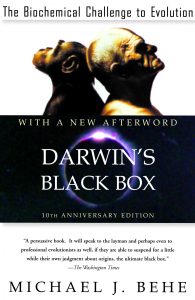 (Axe, 2016), Evolution: Still a Theory in Crisis (Denton, 2016), Darwin’s Doubt: The Explosive Origin of Animal Life and the Case for Intelligent Design (Meyer, 2013; Stephen Meyer is the head of the Discovery Institute), Signature in the Cell: DNA and the Evidence for Intelligent Design (Meyer, 2010), and Darwin’s Black Box: The Biochemical Challenge to Evolution (Behe, 1995; considered by many the foundational text for the ID movement).
(Axe, 2016), Evolution: Still a Theory in Crisis (Denton, 2016), Darwin’s Doubt: The Explosive Origin of Animal Life and the Case for Intelligent Design (Meyer, 2013; Stephen Meyer is the head of the Discovery Institute), Signature in the Cell: DNA and the Evidence for Intelligent Design (Meyer, 2010), and Darwin’s Black Box: The Biochemical Challenge to Evolution (Behe, 1995; considered by many the foundational text for the ID movement).
Many biologists have widely criticised ID, and it is generally considered as a pseudoscience. See amongst others Inside the Human Genome: A Case for Non-Intelligent Design (Avise, 2010), Why Evolution is True (Coyne, 2009), The G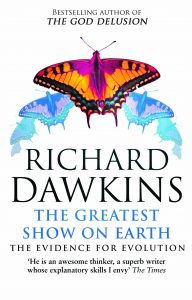 reatest Show on Earth: The Evidence for Evolution (Dawkins, 2009), Why Evolution Works (and Creationism Fails) (Young & Strode, 2009), The Panda’s Black Box: Opening Up the Intelligent Design Controversy (Comfort, 2007), Scientists Confront Creationism: Intelligent Design and Beyond (Petto & Godfrey, 2007), Doubting Darwin?: Creationist Designs on Evolution (Sarkar, 2007), Intelligent Thought: Science Versus the Intelligent Design Movement (Brockman, 2006), Why Darwin Matters: The Case Against Intelligent Design (Shermer, 2006), The Counter-Creationism Handbook (Isaak, 2005), God, the Devil, and Darwin: A Critique of Intelligent Design Theory (Shank, 2004), or Why Intelligent Design Fails: A Scientific Critique of the New Creationism (Young & Edis, 2004). Even earth scientists have felt the need to speak out (For the Rock Record: Geologists on Intelligent Design (Schneiderman & Allmon, 2009)). Several books deal specifically with claims that fossil evidence of transitional forms is lacking (Evolution: What the Fossils Say and Why it Matters (Prothero, 2007; second edition, 2017)), or the idea that evolution
reatest Show on Earth: The Evidence for Evolution (Dawkins, 2009), Why Evolution Works (and Creationism Fails) (Young & Strode, 2009), The Panda’s Black Box: Opening Up the Intelligent Design Controversy (Comfort, 2007), Scientists Confront Creationism: Intelligent Design and Beyond (Petto & Godfrey, 2007), Doubting Darwin?: Creationist Designs on Evolution (Sarkar, 2007), Intelligent Thought: Science Versus the Intelligent Design Movement (Brockman, 2006), Why Darwin Matters: The Case Against Intelligent Design (Shermer, 2006), The Counter-Creationism Handbook (Isaak, 2005), God, the Devil, and Darwin: A Critique of Intelligent Design Theory (Shank, 2004), or Why Intelligent Design Fails: A Scientific Critique of the New Creationism (Young & Edis, 2004). Even earth scientists have felt the need to speak out (For the Rock Record: Geologists on Intelligent Design (Schneiderman & Allmon, 2009)). Several books deal specifically with claims that fossil evidence of transitional forms is lacking (Evolution: What the Fossils Say and Why it Matters (Prothero, 2007; second edition, 2017)), or the idea that evolution 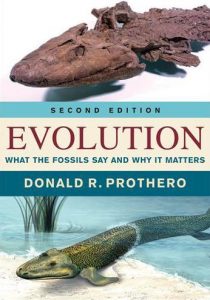 reveals a grander design (Darwin and Design: Does Evolution Have a Purpose? (Ruse, 2003), and The Blind Watchmaker: Why the Evidence of Evolution Reveals a Universe Without Design (Dawkins, 1976; 40th Anniversary Edition, 2016)). For contributions hypothesising how complexity might have emerged naturally, see for example The Arrival of the Fittest: Solving Evolution’s Greatest Puzzle (Wagner, 2014), or The Tinkerer’s Accomplice: How Design Emerges from Life Itself (Turner, 2007).
reveals a grander design (Darwin and Design: Does Evolution Have a Purpose? (Ruse, 2003), and The Blind Watchmaker: Why the Evidence of Evolution Reveals a Universe Without Design (Dawkins, 1976; 40th Anniversary Edition, 2016)). For contributions hypothesising how complexity might have emerged naturally, see for example The Arrival of the Fittest: Solving Evolution’s Greatest Puzzle (Wagner, 2014), or The Tinkerer’s Accomplice: How Design Emerges from Life Itself (Turner, 2007).
Many hard-line scientists, Richard Dawkins included, argue that there is no debate to be had in the first place. There is no point arguing facts with a believer. Engaging these beliefs, and, as the Discovery Institute would have it, ‘teaching the controversy’, merely provides legitimacy to a non-existent controversy (though see Teaching Evolution in a Creation Nation (Laats & Siegel, 2016) for a proposition on how to break the 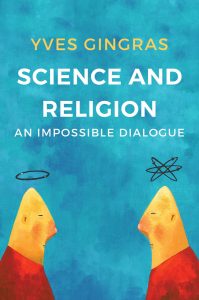 deadlock between science and religion). This touches on the age-old question of what dialogue there can be between science and religion. Dawkins, known for his militant atheism, is outspoken on the matter in his polemical The God Delusion (2006; 10th Anniversary Edition, 2016), while other authors have branded this as a futile effort (see for example Science and Religion: An Impossible Dialogue (Gingras, 2017) and Faith Versus Fact: Why Science and Religion Are Incompatible (Coyne, 2015)).
deadlock between science and religion). This touches on the age-old question of what dialogue there can be between science and religion. Dawkins, known for his militant atheism, is outspoken on the matter in his polemical The God Delusion (2006; 10th Anniversary Edition, 2016), while other authors have branded this as a futile effort (see for example Science and Religion: An Impossible Dialogue (Gingras, 2017) and Faith Versus Fact: Why Science and Religion Are Incompatible (Coyne, 2015)).
Amidst this fierce debate between two extremes, it is easy to overlook there are more moderate ideas. Many religious people do not support a literal reading of holy texts, and supporters of theistic evolution hold that religion and evolution need not contradict each other. The argument that geneticist Francis Collins puts forth in The Language of God (2006) boils down to “evolution is real, but it is the hand of God”. And he is not alone, Monkey Trials and Gorilla Sermons: Evolution and Christianity from 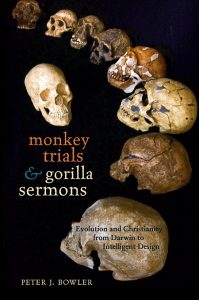 Darwin to Intelligent Design (Bowler, 2007) traces the long history of how churches have sought to reconcile Christian beliefs and evolution, and see ‘reflections of the divine in scientific explanations for the origin of life’. Whether you agree with this or not (religious fundamentalists see it as a capitulation, while Dawkins in The Blind Watchmaker has called it a superfluous attempt to ‘smuggle God in by the back door’), this rapidly leaves the realm of scientific enquiry and becomes one of personal beliefs.
Darwin to Intelligent Design (Bowler, 2007) traces the long history of how churches have sought to reconcile Christian beliefs and evolution, and see ‘reflections of the divine in scientific explanations for the origin of life’. Whether you agree with this or not (religious fundamentalists see it as a capitulation, while Dawkins in The Blind Watchmaker has called it a superfluous attempt to ‘smuggle God in by the back door’), this rapidly leaves the realm of scientific enquiry and becomes one of personal beliefs.
Click here for the final part, which looks at books on how to deal with misinformation.

Re: the Evolution of Intelligence
To this, I would add the concept of biodiversity. No other animal can contemplate biodiversity!
JB
Our species is misnamed. Though sapiens defines human beings as “wise” what humans do especially well is to prospect the future. We are Homo prospectus. In this book, Martin E. P. Seligman, Peter Railton, Roy F. Baumeister, and Chandra Sripada argue it is anticipating and evaluating future possibilities for the guidance of thought and action that is the cornerstone of human success. Much of the history of psychology has been dominated by a framework in which people’s behavior is driven by past history and present circumstances. Homo Prospectus reassesses this idea, pushing focus to the future front and center and opening discussion of a new field of Psychology and Neuroscience.The authors delve into four modes in which prospection operates: the implicit mind, deliberate thought, mind-wandering, and collective imagination. They then explore prospection’s role in some of life’s most enduring questions: Why do people think about the future? Do we have free will? What is the nature of intuition, and how might it function in ethics? How does emotion function in human psychology? Is there a common causal process in different psychopathologies? Does our creativity change with age?In this remarkable convergence of research in philosophy, statistics, decision theory, psychology, and neuroscience, Homo Prospectus shows how human prospection fundamentally reshapes our understanding of key cognitive processes, thereby improving individual and social functioning. It aims to galvanize interest in this new science from scholars in psychology, neuroscience, and philosophy, as well as an educated public curious about what makes humanity what it is.
Not quite what this post was about, but thanks, Joseph, for pointing out an interesting book we did not know about yet. I have added it to our catalogue: http://www.nhbs.com/title/215205/homo-prospectus?bkfno=236116
Both the pseudoscientific creationist types and Dawkinses of this world are obsessed with drawing unwarranted metaphysical conclusions from the findings of biology. Creationists think they somehow prove the existence of God, Dawkins somehow thinks they strike a blow at the heart of religion. The entire affair rests on the fallacy of the excluded middle ground. We can all agree that attempts to find God in bacteria flagella motors are unscientific and deeply unhelpful, especially when believers constantly try to interfere with the teaching of evolution in schools in the US. Therefore the primary blame for much wasted ink and emotion lies with the creationists. Yet I’d be extremely sceptical of a grand narrative which sees late 19th century Fundamentalists as representative of the overall religious response to evolutionary theory. Darwin himself never thought that his ideas ruled out belief in God, and Christians and Jews have been reading their creation stories as metaphorical literature rather than scientific propositions for thousands of years before worries about evolution came onto the scene. The question of how believers ‘reconcile’ their beliefs with science seems like a loaded one along the lines of ‘have you stopped beating your wife yet?’, as Tom McLeish FRS noted in a recent book. Two of the most distinguished and cited academics in the field of evolutionary biology (Martin Nowak in evolutionary dynamics at Harvard, Simon Conway Morris in palaeobiology at Cambridge) are Christians.
Dawkins is a pop science writer who hasn’t set foot in a lab for decades and hasn’t the slightest clue what he’s doing when he goes on adventures into philosophical arguments about what he takes to be the implacations of evolution for belief. Moreover, the notion promoted by Coyne and Gingras (who as a historian of science should know bettter) that there has been some kind of eternal conflict between religion (however defined) and science flies in the face of the overwhelming majority of scholarship on the history of science (see the work of Wootton, Hannam, Harrison, Hedley Brooke, Stanley, Numbers) and can only be seen as ahistorical nonsense motivated by the desire to kick fundamentalists and/or the Templeton Foundation where it hurts. In reality nobody working in evo bio spends a huge amount of time pondering whether their work has anything to do with the ultimate nature of reality. This scuffle seems to be far less of a problem in the hard sciences like physics, chemistry and astronomy, applied mathematics etc. To quote Columbia physicist Peter Woit: “the best advice to people who come to physicists looking for the meaning of life seems to me to politely tell them that they’re looking in the wrong place and asking the wrong person…..Scientists who want more respect should stick to what they know, and avoid the temptation of “science-splaining” to the public. In particular they should avoid preaching about meaning, morality, and other issues that they know no more about than anyone else.”
Thanks for your extended comment and thoughts on the topic. Personally, I agree with you; I allude to it, though admittedly briefly, towards the end of this piece – amidst all the clamouring between the extreme schools of thought, it is easy to lose sight of the fact there is a large middle ground that just quietly gets on with their lives. As Stephen Jay Gould wrote in Rocks of Ages, as long as the two fields of inquiry keep to their own domains, they can co-exist peacefully. As you say, overstepping of these boundaries, by both parties, is the cause of much conflict and debate.
Why in particular biology, and not say, astronomy, currently has this tense relationship with religion is an interesting question, though I’m sure some of the works on the history of evolutionary biology shine a light on this.
I found your mention of historians of science no longer agreeing to this idea of a conflict between science and religion interesting, and it prompted me to look a bit more into this, as I was not fully familiar with this. In that light I found it revealing to see Gary Ferngren (editor of Science & Religion: A Historical Introduction) write in his introduction to the above that Galileo and the Scopes trial have been the exception rather than the rule.
You’re welcome. I only realised how long my comment was after posting it, so sorry if it came across as a soap box speech!
Thanks for doing a good overview of the literature/available books, it’s important that people know the range of views and who holds them, even if some of those views are misleading or mistaken. The historical conflict narrative really drives me insane, since it’s so similar to what creationists do with evolution – ripping quotes out of context, refusing to look at the full body of evidence, letting a preconceived goal drive your approach to data.
Science does make some value claims, and religions do make some factual claims, so potential for problems will always be there – yet as with most things in life, creative tension can make existence more interesting. Talking of getting on with life, I don’t know exactly what kind of universe I live in, but it does seem to include end of year biology exams! Regards